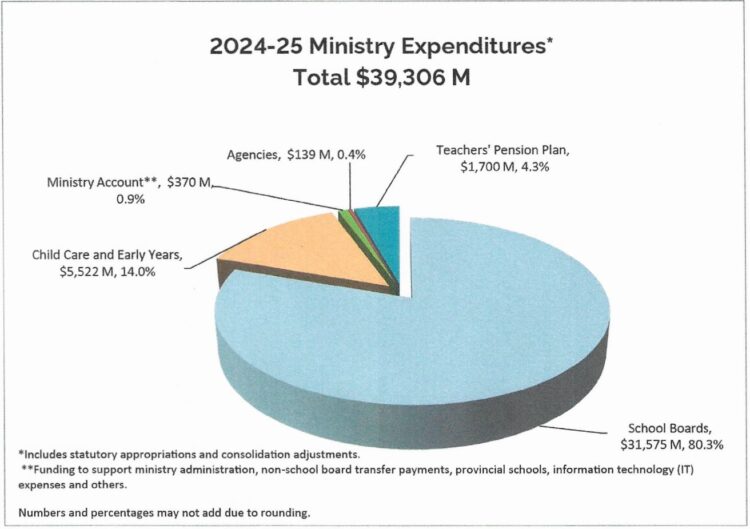A Tsunami of Change in Education
TORONTO – After years of administrative and academic stupor, the Ontario Ministry of Education seems to have developed the courage and vision to do the right thing for those under its care: our children and the society they will eventually lead.
We should have foreseen this in late winter/early spring when newly-minted Minister of Education, Paul Calandra, on April 23,2025, commissioned two accounting firms (PricewaterhouseCoopers LLP and Deloitte LLP) to conduct financial investigations into the affairs of four “large” school boards. In the interest of total transparency, Minister Calandra’s political and Ministerial staff posted the [entire] results online.
The “target Boards” are the Toronto [Public] District School Board, TDSB, the Toronto Catholic District School Board, TCDSB, the Dufferin-Peel Catholic District School Board, DPCDB, and the Ottawa-Carlton District School Board, OCDSB. The blanket of skepticism will soon spread over the rest of the province’s 72 school boards.
In a written statement, Minister Calandra said, “These boards have had multiple opportunities to address their structural financial issues, and time and again, they have failed to do so. Parents and educators expect and deserve a school system where spending decisions put students first. When school boards fail to meet that basic obligation, it is my duty as minister of education to act.”
So he did. All four have been placed under “supervision”. Effectively, it means Trustees no longer have a role while the supervisor is in place. The administrative staff – the bureaucracy of the board – also is without authority. The Ministry has all but said it has no confidence in their ability to address problems, establish solutions or to deliver supportable programs. The investigators analyzed data from and for the last four years to sustain their recommendations to the Minister.
The exercise is not trivial. The ministry’s expenditure plan for 204-25 engages $39.306 Billion of public money (see pie chart below, https://www.ontario.ca/page/published-plans-and-annual-reports-2024-2025-ministry-education), 80.3% of that total administered through school boards.
These, in turn, are run by “professionals”(see the compensation for the TCDSB’s top five staffers, according to Ontario’s Sunshine list, 2025: here below). Those staff are answerable to publicly-elected trustees who provide mission statements and oversight, subject only to constitutional mandated authorities like the magisterium in Catholic boards.
Nonetheless, the TDSB appears to have relied on sale of “properties” (non renewable assets) to balance their books, rejecting approximately 50% of alternative management recommendations over the last two years alone. The TCDSB, for its part, tripled its in-year deficit compared to last year, the government said in a press release.
Meanwhile, the OCDSB has “completely depleted its reserves”, and plans to use money from non-renewable “asset sales” to achieve a balance, and the DPCDSB is “at the brink of bankruptcy,” according to that same presser.
The Corriere has been following the practices of several school boards and its “personalities” for several years. It now looks as if the issues we have been highlighting will now be front and centre for everyone. It bears repeating that we will pick up where we left off, especially since third party, government-commissioned entities have set the parameters for the road ahead. By now we should expect an avalanche of resignations.
In the pic above, the Minister of Education of Ontario, Paul Calandra (photo from Twitter X – @PaulCalandra)






